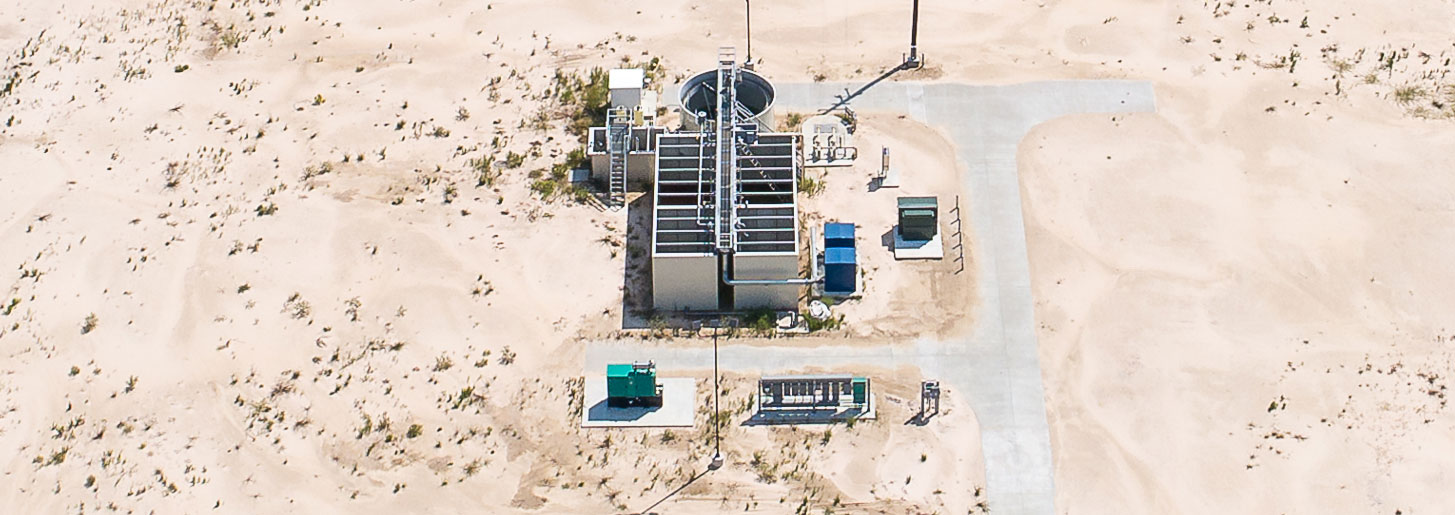
The flexibility and cost savings of these systems make them more popular and attractive
Most urban areas rely on a centralized water and wastewater treatment system, where treatment takes place at a central location and serves the broader community through a long network of water and sewage pipes.
Now there is increasing interest in decentralized infrastructure, especially for treating water and wastewater at remote locations. Decentralized wastewater treatment is as effective as centralized and offers several benefits: It is time- and cost-efficient, it is flexible and scalable, it can help build resilience and facilitate local water reuse, negotiations are simpler, and flexible financing options are available.
Systems Save Time and Money
Unlike centralized water and wastewater treatment systems that require extensive pipe networks that can account for more than 50% of a project’s capital outlay, decentralized systems treat water and wastewater locally, significantly reducing these expenses. It also alleviates the challenges of routing pipelines through difficult terrain and sensitive cultural areas or ecosystems.
Instead of a vast network of pipes and pumps, a decentralized system consists of a smaller treatment plant that is placed where water is used or wastewater is produced. A decentralized system reduces the construction and maintenance costs that include finding and repairing leaks in long pipe networks, costs that can quickly add up as the infrastructure ages.
Smaller Plants are Flexible and Scalable
As a decentralized water system is designed to meet the needs of the local community, more cost-effective package plants allow the project to start small and be scaled up as the community grows. This reduces the initial outlay and allows the plant to expand according to the community’s future needs.
It also allows water services to be provided to remote locations and areas where it may not have been feasible before, allowing developers to build anywhere. With AUC’s Lease Plant Program that offers phased installation, new developments can get the capacity they need at a fraction of the cost of a centralized plant.
Builds Resilience to Disasters and Shutdowns
When centralized water infrastructure fails, it can have a dire impact on a broad region dependent on its services. When a decentralized plant suffers damage or needs to undergo repairs, it affects a much smaller area. By distributing water and wastewater treatment infrastructure across multiple decentralized units, the system becomes less susceptible to single points of failure. If one unit is disrupted or damaged, the other units can continue functioning, ensuring the ongoing provision of water and wastewater services.
Facilitates Local Water Reuse
Treating water and wastewater locally allows water to be recycled and reused without an expensive pipeline to return the water to the point of use. Recycling wastewater for reuse ensures a sustainable supply of water, especially in arid regions.
Reduces Regulatory Procedures and Red Tape
A large-scale centralized project can be stuck with red tape, which can delay or even derail a project. Decentralization limits the bureaucratic hurdles by limiting the area affected by the plant. To simplify matters further, AUC’s experts are well-versed in the regulatory process and will manage all planning on our client’s behalf, ensuring that all requirements are met.
Flexible Financing Options
While the costs of constructing a large, centralized project can be prohibitive, smaller, decentralized projects are much more cost-effective and are supported by various financing options. With AUC’s flexible Lease Plant Program, clients can get the water infrastructure they need without any upfront capital. Choose a short-term or long-term lease agreement, or a lease-to-purchase plan, that fits your project timeline.
The ability to lease water infrastructure that can be expanded as more capacity is required provides the flexibility that can help roll out much-needed water and sanitation services to communities where it was not viable before.
Contact AUC to learn more about our decentralized water and wastewater treatment solutions and the flexible financing options available with our Lease Plant Program.

